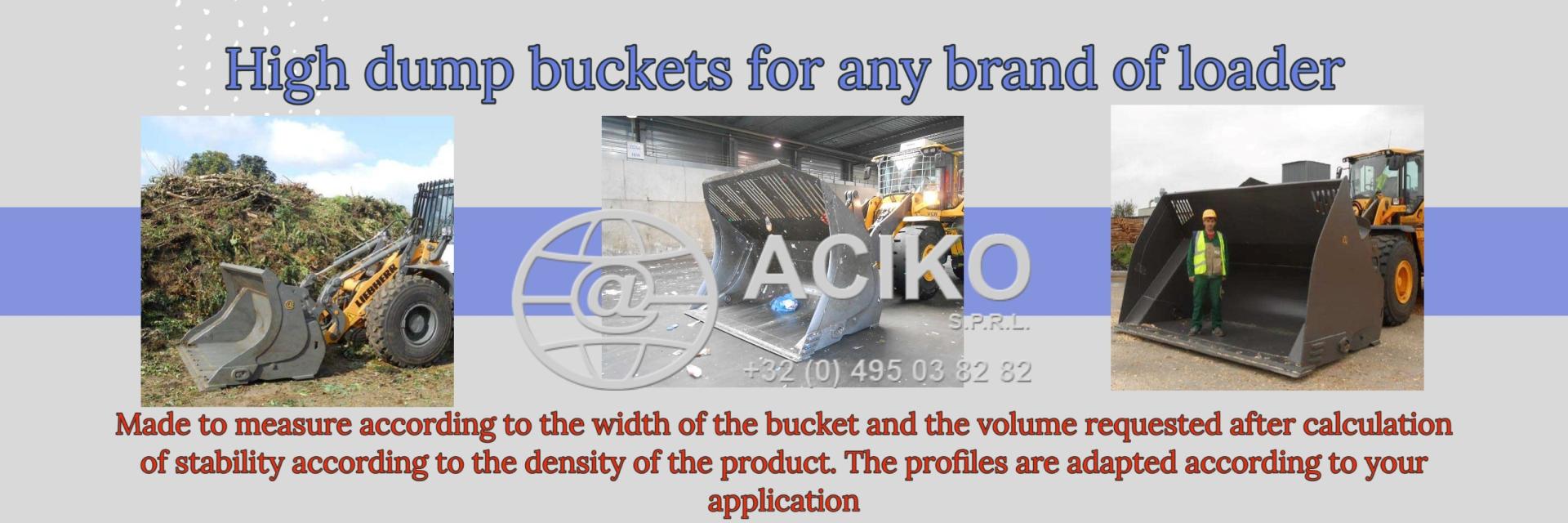R.E.News International-Steering Towards Safety in Mozambique with HGV Driving Training
 16/05/24-FR-English-NL-footer
16/05/24-FR-English-NL-footer
Vers la sécurité au Mozambique avec une formation à la conduite des poids lourds
 Image- Transaid
Image- Transaid
Au Mozambique, une initiative transformatrice en matière de sécurité routière a considérablement élevé les normes professionnelles des conducteurs de poids lourds (PL), grâce aux efforts de collaboration de plusieurs organismes internationaux.
Cette initiative, soutenue par Transaid et faisant partie du programme Emploi et compétences pour le développement en Afrique (E4D), mis en œuvre par la GIZ et financé par les gouvernements allemand et norvégien, a eu un impact notable au cours des deux dernières années.
Formation transformatrice et son impact
En deux ans, plus de 450 conducteurs de poids lourds ont été formés dans le cadre de cette initiative, avec un taux de réussite remarquable. Une enquête approfondie auprès de ces conducteurs a révélé qu'une écrasante majorité d'entre eux pensent que la formation a considérablement amélioré leurs capacités professionnelles. Ces retours soulignent l’efficacité des modules de formation et les changements positifs qu’ils ont apportés au quotidien des chauffeurs.
Le projet fixait des objectifs ambitieux et dépassait de loin les attentes initiales. Visant initialement à améliorer les compétences d’une poignée de formateurs de conducteurs, le projet a réussi à former 31 formateurs de conducteurs, soit plus du triple de l’objectif initial. Ce groupe comprenait notamment deux femmes, marquant une étape importante vers l’inclusivité dans ce secteur. Ces formateurs ont ensuite dispensé une formation de qualité à 452 conducteurs de poids lourds, posant ainsi des bases solides pour la formation continue et la sécurité sur les routes.
Zoom sur les formations
Le programme de formation a été méticuleusement conçu pour répondre aux besoins pressants des conducteurs de poids lourds, en mettant l'accent sur les pratiques durables. Les cours proposés étaient :
Sécurité du transport de marchandises : un cours destiné à garantir que les conducteurs comprennent comment transporter des marchandises de manière sûre et efficace.
Conduite défensive (deux parties) : Ces cours ont été conçus pour enseigner aux conducteurs comment anticiper et éviter les dangers sur la route grâce à un mélange d'enseignement théorique en classe et de formation pratique sur route.
Ces cours ont reçu de nombreux éloges de la part des conducteurs et de leurs employeurs. Un porte-parole de l'une des entreprises bénéficiaires a souligné la pertinence de la formation, déclarant : « Le matériel a été soigneusement élaboré pour correspondre aux commentaires des membres du comité technique local afin de garantir que l'instruction correspondait à ce qui était le plus nécessaire. »
Par ailleurs, un représentant d’Usalama, une auto-école locale impliquée dans le projet, a souligné : « Nous avons pu mieux nous implanter sur le marché auprès de nos clients, notamment les grands fournisseurs pour qui la sécurité routière est primordiale. »
L'Autorité nationale pour l'enseignement professionnel s'efforce actuellement de combiner ces trois cours en un seul cours enregistré. Parallèlement, les établissements de formation et les auto-écoles font activement la promotion de cette nouvelle formation auprès des conducteurs et des entreprises, garantissant ainsi que les bénéfices de ce projet atteignent un public plus large.
Commentaires des conducteurs et orientations futures
L’impact de la formation se reflète le plus clairement dans les commentaires des conducteurs eux-mêmes. Un conducteur a partagé son expérience en déclarant : « Je suis désormais plus prudent sur la voie publique. Je respecte pleinement le code de la route et je me sens vraiment comme un professionnel, capable de mieux voir et analyser ce qui se passe autour de moi.
Ce sentiment se retrouve partout, les conducteurs exprimant une confiance et un professionnalisme retrouvés après avoir terminé leur formation. Cette croissance personnelle témoigne du succès du projet non seulement dans l’amélioration des compétences de conduite, mais également dans la promotion d’une culture de sécurité et de responsabilité.
Vision pour l'avenir
Réfléchissant au succès du projet, Caroline Barber, directrice générale de Transaid, a déclaré : « Avant ce projet, la formation professionnelle des conducteurs de poids lourds était limitée au Mozambique, sans norme établie, et largement axée sur l'acquisition rapide des permis de conduire. Les conducteurs avaient tendance à s’appuyer sur des méthodes d’apprentissage entre pairs ou d’auto-apprentissage, avec peu de formations formelles de conduite disponibles.
Elle a poursuivi : « Lancer ce projet et dépasser notre objectif de formation est une réussite fantastique pour toutes les personnes impliquées – et nous sommes convaincus que le programme continuera à aider les conducteurs du Mozambique à être plus en sécurité sur la route. »
Conclusion
Le projet de sécurité routière au Mozambique est un brillant exemple de ce qui peut être réalisé grâce à des efforts ciblés et à une coopération internationale. En renforçant les compétences des conducteurs de poids lourds, le projet améliore non seulement les moyens de subsistance individuels, mais contribue également à une sécurité routière plus large pour tous les usagers. Le succès de cette initiative sert de modèle à des programmes similaires dans le monde entier, visant à réduire les accidents de la route et à créer un environnement de conduite plus sûr.
À mesure que ce projet avance, le soutien continu d'organisations telles que Transaid, GIZ et divers organismes gouvernementaux sera crucial pour maintenir et étendre ces améliorations. L’avenir s’annonce prometteur et, grâce à un engagement continu, les routes du Mozambique deviendront de plus en plus sûres pour tous.
NJC.© Info Transaid GIZ
-------------------------------------------------------------------------------------------------------------
 16/05/24-English
16/05/24-English
Steering Towards Safety in Mozambique with HGV Driving Training
 Image- Transaid
Image- Transaid
In Mozambique, a transformative road safety initiative has significantly elevated the professional standards of heavy goods vehicle (HGV) drivers, thanks to the collaborative efforts of several international bodies.
This initiative, supported by Transaid and part of the Employment and Skills for Development in Africa (E4D) programme, implemented by GIZ and funded by the German and Norwegian governments, has made a noteworthy impact over the past two years.
Transformative Training and Its Impact
Over a span of two years, more than 450 HGV drivers have been trained under this initiative, with a remarkable success rate. A comprehensive survey among these drivers revealed that an overwhelming 100 percent believe the training has substantially improved their professional capabilities. This feedback underscores the effectiveness of the training modules and the positive changes they have brought to the drivers’ daily operations.
The project set ambitious goals and far exceeded initial expectations. Initially aiming to enhance the skill set of a handful of driver trainers, the project managed to train 31 driver trainers, which is more than triple the initial target. Notably, this group included two women, marking a significant step towards inclusivity in this sector. These trainers then went on to provide high-quality training to 452 HGV drivers, laying a strong foundation for ongoing education and safety on the roads.
A Closer Look at the Training Courses
The training curriculum was meticulously designed to cater to the pressing needs of HGV drivers, with a focus on sustainable practices. The courses offered were:
Cargo Transport Safety: A course dedicated to ensuring that drivers understand how to transport cargo securely and efficiently.
Defensive Driving (Two Parts): These courses were tailored to teach drivers how to anticipate and avoid hazards on the road through a blend of theoretical classroom instruction and practical on-road training.
These courses received high praise from both the drivers and their employers. A spokesperson from one of the beneficiary companies highlighted the relevance of the training, saying, “The material was well cultivated to match feedback from local technical committee members to ensure that the instruction matched what was most needed.”
Moreover, a representative from Usalama, a local driving school involved in the project, noted: “We have been able to better establish ourselves in the market with our clients, especially large suppliers for whom road safety is paramount.”
The National Authority for Professional Education is currently working to combine these three courses into one registered course. Meanwhile, training institutions and driving schools are actively promoting this new training to drivers and businesses, ensuring that the benefits of this project reach a wider audience.
Driver Feedback and Future Directions
The impact of the training is most vividly seen in the feedback from the drivers themselves. One driver shared his experience, stating: “I am now more cautious on the public road. I fully comply with the traffic rules, and I really feel like a professional, capable of seeing and analysing what is happening around me better than before.”
This sentiment is echoed across the board, with drivers expressing newfound confidence and professionalism after completing their training. This personal growth is a testament to the project’s success in not only enhancing driving skills but also in fostering a culture of safety and responsibility.
Vision for the Future
Reflecting on the project’s success, Caroline Barber, Chief Executive of Transaid, remarked: “Prior to this project, professional HGV driver training was limited in Mozambique, with no set standard, and largely focused on rapid acquisition of driving permits. Drivers tended to be reliant on peer-to-peer or self-learning methods, with little formal driver training available.”
She continued: “To launch this project and surpass our training goal is a fantastic achievement for everyone involved – and we’re confident that the programme will continue to help Mozambique’s drivers to be safer on the road.”
Conclusion
The Mozambique road safety project is a shining example of what can be achieved with focused efforts and international cooperation. By enhancing the skills of HGV drivers, the project not only improves individual livelihoods but also contributes to broader road safety for all users. The success of this initiative serves as a blueprint for similar programmes worldwide, aiming to reduce road accidents and create a safer driving environment.
As this project moves forward, the continued support from organizations like Transaid, GIZ, and various government bodies will be crucial in sustaining and expanding these improvements. The future looks promising, and with ongoing commitment, the roads of Mozambique will become increasingly safer for everyone.
NJC.© Info Transaid GIZ
------------------------------------------------------------------------------------------------------------------
 16/05/24-NL
16/05/24-NL
Sturen op veiligheid in Mozambique met vrachtwagenrijtraining
 Image- Transaid
Image- Transaid
In Mozambique heeft een transformatief verkeersveiligheidsinitiatief de professionele normen van vrachtwagenchauffeurs aanzienlijk verhoogd, dankzij de gezamenlijke inspanningen van verschillende internationale instanties.
Dit initiatief, ondersteund door Transaid en onderdeel van het Employment and Skills for Development in Africa (E4D) programma, geïmplementeerd door GIZ en gefinancierd door de Duitse en Noorse regeringen, heeft de afgelopen twee jaar een opmerkelijke impact gehad.
Transformatieve training en de impact ervan
In twee jaar tijd zijn in het kader van dit initiatief ruim 450 vrachtwagenchauffeurs opgeleid, met een opmerkelijk succespercentage. Uit een uitgebreid onderzoek onder deze chauffeurs bleek dat een overweldigende 100 procent van mening is dat de training hun professionele capaciteiten aanzienlijk heeft verbeterd. Deze feedback onderstreept de effectiviteit van de trainingsmodules en de positieve veranderingen die ze hebben gebracht in de dagelijkse werkzaamheden van de chauffeurs.
Het project stelde ambitieuze doelen en overtrof de aanvankelijke verwachtingen ruimschoots. Aanvankelijk was het project bedoeld om de vaardigheden van een handvol chauffeurstrainers te verbeteren, maar het project slaagde erin 31 chauffeurstrainers op te leiden, wat meer dan het drievoudige is van de oorspronkelijke doelstelling. Opvallend was dat deze groep twee vrouwen omvatte, wat een belangrijke stap betekende in de richting van inclusiviteit in deze sector. Deze trainers gaven vervolgens hoogwaardige trainingen aan 452 vrachtwagenchauffeurs, waarmee een sterke basis werd gelegd voor permanente educatie en veiligheid op de weg.
Een nadere blik op de trainingen
Het opleidingsprogramma is zorgvuldig ontworpen om tegemoet te komen aan de dringende behoeften van vrachtwagenchauffeurs, met de nadruk op duurzame praktijken. De aangeboden cursussen waren:
Veiligheid van vrachtvervoer: een cursus die erop gericht is ervoor te zorgen dat chauffeurs begrijpen hoe ze vracht veilig en efficiënt kunnen vervoeren.
Defensief rijden (twee delen): Deze cursussen zijn op maat gemaakt om bestuurders te leren hoe ze kunnen anticiperen en gevaren op de weg kunnen vermijden door een mix van theoretisch klassikaal onderwijs en praktische training op de weg.
Deze cursussen kregen veel lof van zowel de chauffeurs als hun werkgevers. Een woordvoerder van een van de begunstigde bedrijven benadrukte de relevantie van de training en zei: “Het materiaal was goed ontwikkeld om de feedback van lokale technische commissieleden te matchen om ervoor te zorgen dat de instructie overeenkwam met wat het meest nodig was.”
Bovendien merkte een vertegenwoordiger van Uselama, een lokale rijschool die bij het project betrokken was, op: “We hebben ons beter in de markt kunnen positioneren bij onze klanten, vooral grote leveranciers voor wie verkeersveiligheid voorop staat.”
De Rijksautoriteit voor Beroepsonderwijs werkt er momenteel aan om deze drie cursussen te combineren tot één geregistreerde cursus. Ondertussen promoten opleidingsinstituten en rijscholen deze nieuwe training actief bij chauffeurs en bedrijven, zodat de voordelen van dit project een breder publiek bereiken.
Feedback van chauffeurs en toekomstige aanwijzingen
De impact van de training komt het duidelijkst tot uiting in de feedback van de chauffeurs zelf. Eén chauffeur deelde zijn ervaring en zei: “Ik ben nu voorzichtiger op de openbare weg. Ik houd mij volledig aan de verkeersregels en voel mij echt een professional, die beter dan voorheen kan zien en analyseren wat er om mij heen gebeurt.”
Dit sentiment wordt over de hele linie weerspiegeld, waarbij chauffeurs na het voltooien van hun opleiding blijk geven van hernieuwd vertrouwen en professionaliteit. Deze persoonlijke groei is een bewijs van het succes van het project, niet alleen bij het verbeteren van de rijvaardigheden, maar ook bij het bevorderen van een cultuur van veiligheid en verantwoordelijkheid.
Visie voor de toekomst
Terugkijkend op het succes van het project merkte Caroline Barber, Chief Executive van Transaid, op: “Vóór dit project was de opleiding van professionele vrachtwagenchauffeurs in Mozambique beperkt, zonder vaste norm, en was deze grotendeels gericht op het snel verkrijgen van rijbewijzen. Chauffeurs waren vaak afhankelijk van peer-to-peer of zelflerende methoden, terwijl er weinig formele rijopleidingen beschikbaar waren.”
Ze vervolgde: “Het lanceren van dit project en het overtreffen van ons trainingsdoel is een fantastische prestatie voor alle betrokkenen – en we zijn ervan overtuigd dat het programma de chauffeurs van Mozambique zal blijven helpen veiliger op de weg te zijn.”
Conclusie
Het verkeersveiligheidsproject in Mozambique is een lichtend voorbeeld van wat kan worden bereikt met gerichte inspanningen en internationale samenwerking. Door de vaardigheden van vrachtwagenchauffeurs te vergroten, verbetert het project niet alleen het individuele levensonderhoud, maar draagt het ook bij aan de bredere verkeersveiligheid voor alle gebruikers. Het succes van dit initiatief dient als blauwdruk voor soortgelijke programma's wereldwijd, gericht op het terugdringen van verkeersongevallen en het creëren van een veiligere rijomgeving.
Naarmate dit project vordert, zal de voortdurende steun van organisaties als Transaid, GIZ en verschillende overheidsinstanties van cruciaal belang zijn bij het ondersteunen en uitbreiden van deze verbeteringen. De toekomst ziet er veelbelovend uit, en met voortdurende inzet zullen de wegen van Mozambique voor iedereen steeds veiliger worden.
NJC.© Info Transaid GIZ
-----------------------------------------------------------------------------------------------------------------
Date de dernière mise à jour : 14/05/2024
















